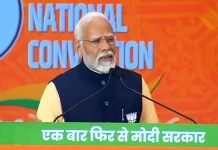By Anup Vittal
The bulls that are part of Jallikattu are strong and hefty ones. Their health is well-taken care. These bulls are the responsibility of the entire village. If at all anybody is injured, it is the men. The bull is never injured in this event. Men display their valor and the fittest and the strongest wins the game. Then why hell was this event banned for cruelty on animals?

It is said that what beauty is to women, valor is to men. Many may out rightly show disdain to my ensuing words. I would like to make it clear at the outset that I am not justifying cruelty in the name of valor or superstition. I am only proposing to dispel certain misconceptions as to what is animal savagery and what is compassion or tenderness.
Before going to what “Jallikattu” actually is, let us take a look at other animal sports in India to get a brief background. Kambala is one he-buffalo race sport in Udupi, Karnataka; “Jallikattu” in Tamil Nadu is another; besides many animals viz. Elephants, horses, etc. are part of many local traditional carnivals in India; Pooram in Kerala, Dasara of Mysuru, to name a few. Basically, animals were and are a part of all festivities in India. Ours is a land, where it is taught to revere animals. Even during the times of Mahabharata, we hear the stories of valor of Emperor Bharatha. He used to ride on tigers in the forest. Now one may call his ability to tame tigers as “infringement of animal rights”, the other may call it “valor”. To view animal sporting in the lens of animal rights, barbarism, etc., first of all, one has to understand what the animal is. Anyone who has visited the Mysuru Dasara will know – Elephants are made to carry loads of weight, and are made to move around in loud noises of musical instruments. Same is the case with Pooram in Kerala with the ‘panch vadyam’ echoing all around the elephants. All this to a superficial eye seems to be barbarism and cruelty. If one reads the news at the end of Dasara or Pooram, or if anybody bothered to ask the mahouts of those elephants which participate in these events, one will come to know of the bondage between the animal and the mahout. Elephants are reared with love and with compassion. These animals are but part of the families of the localities.
The bondage is such that these animals sense the arrival of these festivals and their feelings and expressions are felt. Only those who “live” with these animals will know how happy the animals feel to be part of these festivities. Those who see animals in pictures and on their plates as “dead” ones will never understand this bondage and love.
Coming to Jallikattu. It is a sporting event in the western sense. Yet, if you closely observe, it is nothing but festivity for the local people. In many places, in Tamil Nadu, this carnival is in vogue since many years. Some even believe that this tradition is as old as 2000 years. Let me tell you on the face of it, not one bull is killed or even injured to the least in this festival. I am purposefully using this word “Festival”. I do not want to equate local traditions with sports. That is when the prejudices arise. That is when the question of barbarism arises.
The bulls that are part of Jallikattu are strong and hefty ones. They are fed handsomely. Their health is as well taken care. These bulls are the responsibility of the entire village. Many rich and well off people look after these bulls like members of their families. Even before these bulls are let loose in Jallikattu, their health and condition are examined by certified Veterinary Doctors. This event is also overlooked by Government officials under the provisions of “Jallikattu Act” by the officials of the Tamil Nadu Government. The bulls are trained fervently, and with dedication, Jallikattu is carried out. Even the athletes who participate in the Jallikattu event will undergo medical tests and will be tested for alcohol. These athletes will observe 10 days of austerity before the event which includes eating vegan food, no smoking, no alcohol consumption and not even sex. Many youths have given up smoking, alcohol, and sex on account of “Jallikattu”. Youth have been averse to addictions to keep themselves fit and healthy. For the people who raise these bulls, their bulls are alleged to be sacred to them. In the actual event, the bull is let loose and the participants will have to hold on to the hump of the bull. If a participant is able to hold on to it till the finish line, he is declared victorious. Else, the Bull is declared as the victor. Now, anybody will laugh at this. Why the hell was this event banned for cruelty on animals? If at all anybody will be injured, it is the men. The bull is never injured in this event. Men display their valor and the fittest and the strongest wins the game.
Let us now come to this very interesting discussion. The sheer hypocrisy surrounding the controversy of this ban on “Jallikattu”. Since childhood, we were taught the lessons of Rome and Colosseum. People there were raised like sheep and pig to be slaughter in a fight of madness. For the King’s “entertainment”, men had to become slaves and be slaughtered as per the whims and wishes of the barbaric king. This stupid sport is justified as valor and Jallikattu is cruelty? Praises for the sport of the white men and condemnation for the traditions of the east. There is this another practice of “Halal” food among our Muslim brethren. In this practice, the animal’s throat is slit so that the blood spills completely out of its body before it dies an agonizing death. Killing animals cruelly is pure love towards animals and rearing bulls with “love and compassion” is barbarism! How is this logic justified? Why are the hypocrites not ready to point their fingers at actual cruel practices? This only points to one thing: All the acts of “Pro-Animals Rights Activism” is just limited to curtail and criticize local Hindu traditions and customs.
I would like to now look into the observations of the Honorable Supreme Court of India on its judgement on the ban of “Jallikattu”. The Supreme Court judgment cited a number of doctrines like the right to life, doctrine of necessity, compassion, humanism and repugnancy to rule that Jallikattu was a non-essential activity, in which the welfare of the “bulls was ignored solely for human pleasure”. I would not wish to comment on the veracity of the judgment. What Supreme Court decides is the law of the land. But something is missing in this entire story. Is not the slaughtering of animals also cruelty? Animals are butchered for “Pleasure, taste, and money”. What is this then, “love and compassion”? I do not want to make this a debate of “Vegetarianism v/s Non- Vegetarianism”. All I wish to say is this: When it comes to ethnic traditions it is cruelty, whereas when it comes to the fulfilment of one’s pleasure or making money by running slaughterhouses it is not cruelty. This is veritably double standards.
Now the political parties would always like to reap their harvest out of this. What better occasion than the “Sankranti” or “Pongal” itself? This is the time to harvest. For the farmers, it is the crops, and for the politicians, it is the vote bank. The Central Government took a bold step to reverse the ban on“Jallikattu”. But with the pressure from “Animal Rights Activists” and from the opposition, the situation worsened. Supreme Court finally hit its baton and all was over.
This Pongal, in Tamil Nadu, there will be many questions to be answered. These questions shall not be raised by any political party, media, or the supreme court of India. These questions shall be raised by the “Bull” that participates in Jallikattu. Yes, this Pongal the bull shall ask questions and all shall stand mum,
Where is the love? Where is the compassion?
Where are my people? Where are the festivities?
Where is the Pongal? Where are the sweets?
Where are the races and the display of valor?
——
Fie on your activism; fie on your law;
Fie on the political game; fie on the hypocrisy;
Oh, Lord! The Protector of the world.
Where is my life? Where is my Jallikattu?
Finally, among all the clamour the Jallikattu bull asks the God, “Why have you taken away the love, in the name of ‘protecting’ me, and why have you taken away my life in the guise of ‘safeguarding’ my life?” And in reply, the god stays mum……….
(The author is Writer/commentator on current affairs and a Yoga expert.)











